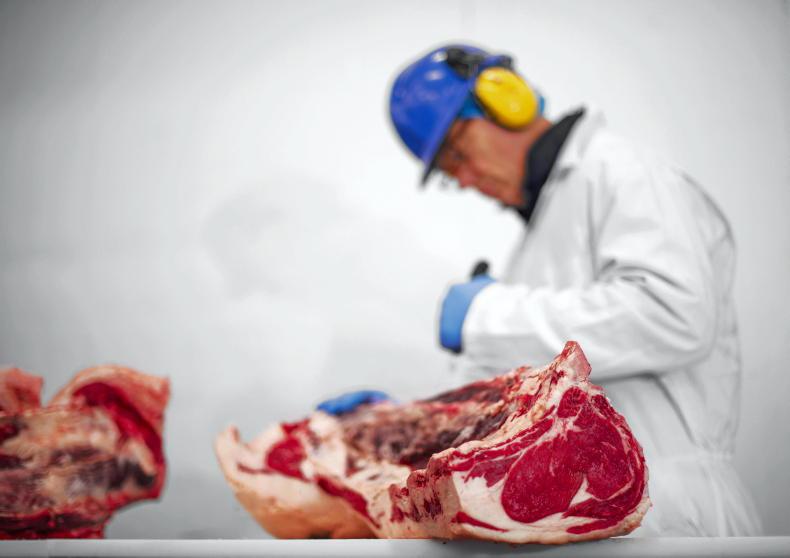Minister of State for Business, Employment and Retail Damien English announced comprehensive changes to the employment permits system for workers from outside the European Economic Area (EEA) on 28 October.
These changes will address skills and labour shortages in construction, logistics, hospitality and the agri-food sectors, and come into effect immediately.
The main changes include:
Most construction sector jobs are now eligible for a general employment permit (GEP). Quota to be removed for HGV driver work permits.New GEP quotas for 1,000 horticultural operatives, 500 meat deboners, 1,500 meat-processing operatives and 100 dairy farm assistants, with a strategic review of labour attraction and retention in the sector to follow.350 GEP for hospitality managers.Social workers to be eligible for critical skills employment permit.Dispensing opticians to be eligible for GEP.New GEP quota of 100 for work riders. The agri-food and agricultural sectors
The agri-food and agricultural sectors are experiencing unprecedented labour challenges due to the pandemic, in spite of initiatives to attract and retain staff, and has identified significant unfilled vacancies prior to the reopening of international travel, the number which continues to increase, with an attendant risk to supply chains and harvests.
Ireland is an outlier in Europe in not having a seasonal employment permit. These new quotas will assist the sector, while legislation proceeds to rectify it.
Minister English said: "The agri-food sector shows evidence of significant challenges, notably in meat processing and horticulture. We have responded to address that immediate need with additional permit quotas.
"In addition, the equine sector has indicated a long-standing need for work riders, an occupation with niche requirements which are especially difficult to source. As of today (28 October), a quota of 100 general employment permits will be made available for work riders.”
Transport, logistics and supply chain sector
In support of supply chains and cognisant of the ongoing issues facing transport and logistic operators, exacerbated by COVID-19 and Brexit, it has been announced that any HGV drivers recruited from outside the EEA will be eligible for an employment permit without the limitation of a quota.
The quota has been in existence since 2017 and was extended previously in 2019. The quota is not fully used up yet, so does not present an immediate constraint on labour supply.
Minister English said: "The decision to remove the quota entirely for HGV drivers will support the work of those businesses responsible for importing and exporting consumer goods and products to and from Ireland.
"We worked closely with the Department of Transport to help ensure continued access to the skilled workers needed, as the economy continues to grow through the ongoing constraints of the pandemic and Brexit.”
Employment permits system
The employment permits system is designed to attract highly skilled workers from outside the EEA to Ireland, to meet skills demand in the economy, where those skills can’t be accessed through the resident labour force.

Ireland operates a managed employment permit system through occupation lists, which are reviewed twice a year.
This system is an evidenced-based process, which takes account of labour market conditions and submissions from sectors and other stakeholders.
This enables the maximisation of the benefits of economic migration, while minimising the risk of disrupting the Irish labour market.
This system, although currently very relevant, is not intended to act as a substitute for meeting the challenge of up-skilling the state’s resident workforce, in the longer term.
Read more
Money Mentor: Budget 2022 and its effect on farming households
Young farmers' stamp duty relief extended
Minister of State for Business, Employment and Retail Damien English announced comprehensive changes to the employment permits system for workers from outside the European Economic Area (EEA) on 28 October.
These changes will address skills and labour shortages in construction, logistics, hospitality and the agri-food sectors, and come into effect immediately.
The main changes include:
Most construction sector jobs are now eligible for a general employment permit (GEP). Quota to be removed for HGV driver work permits.New GEP quotas for 1,000 horticultural operatives, 500 meat deboners, 1,500 meat-processing operatives and 100 dairy farm assistants, with a strategic review of labour attraction and retention in the sector to follow.350 GEP for hospitality managers.Social workers to be eligible for critical skills employment permit.Dispensing opticians to be eligible for GEP.New GEP quota of 100 for work riders. The agri-food and agricultural sectors
The agri-food and agricultural sectors are experiencing unprecedented labour challenges due to the pandemic, in spite of initiatives to attract and retain staff, and has identified significant unfilled vacancies prior to the reopening of international travel, the number which continues to increase, with an attendant risk to supply chains and harvests.
Ireland is an outlier in Europe in not having a seasonal employment permit. These new quotas will assist the sector, while legislation proceeds to rectify it.
Minister English said: "The agri-food sector shows evidence of significant challenges, notably in meat processing and horticulture. We have responded to address that immediate need with additional permit quotas.
"In addition, the equine sector has indicated a long-standing need for work riders, an occupation with niche requirements which are especially difficult to source. As of today (28 October), a quota of 100 general employment permits will be made available for work riders.”
Transport, logistics and supply chain sector
In support of supply chains and cognisant of the ongoing issues facing transport and logistic operators, exacerbated by COVID-19 and Brexit, it has been announced that any HGV drivers recruited from outside the EEA will be eligible for an employment permit without the limitation of a quota.
The quota has been in existence since 2017 and was extended previously in 2019. The quota is not fully used up yet, so does not present an immediate constraint on labour supply.
Minister English said: "The decision to remove the quota entirely for HGV drivers will support the work of those businesses responsible for importing and exporting consumer goods and products to and from Ireland.
"We worked closely with the Department of Transport to help ensure continued access to the skilled workers needed, as the economy continues to grow through the ongoing constraints of the pandemic and Brexit.”
Employment permits system
The employment permits system is designed to attract highly skilled workers from outside the EEA to Ireland, to meet skills demand in the economy, where those skills can’t be accessed through the resident labour force.

Ireland operates a managed employment permit system through occupation lists, which are reviewed twice a year.
This system is an evidenced-based process, which takes account of labour market conditions and submissions from sectors and other stakeholders.
This enables the maximisation of the benefits of economic migration, while minimising the risk of disrupting the Irish labour market.
This system, although currently very relevant, is not intended to act as a substitute for meeting the challenge of up-skilling the state’s resident workforce, in the longer term.
Read more
Money Mentor: Budget 2022 and its effect on farming households
Young farmers' stamp duty relief extended








 This is a subscriber-only article
This is a subscriber-only article










SHARING OPTIONS: